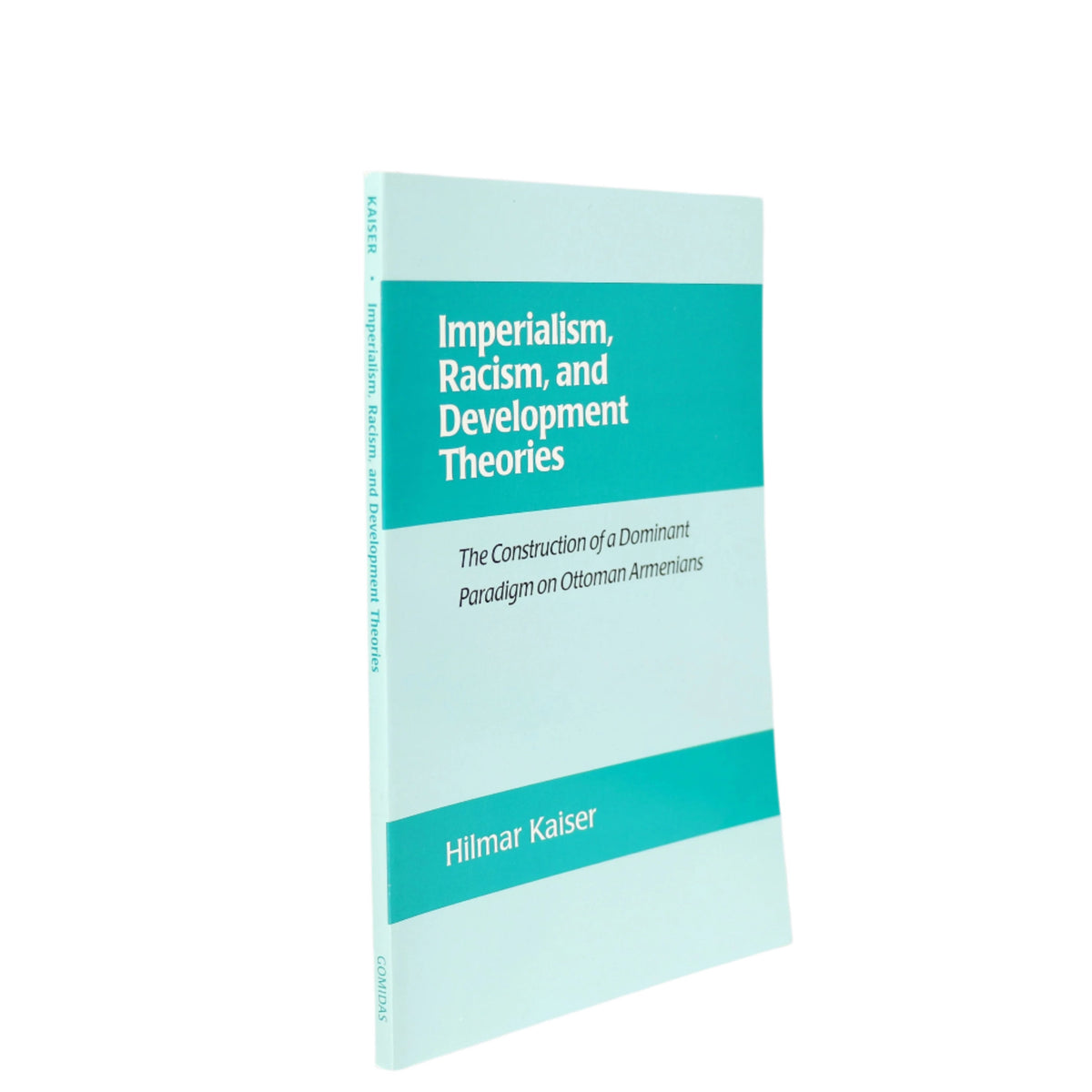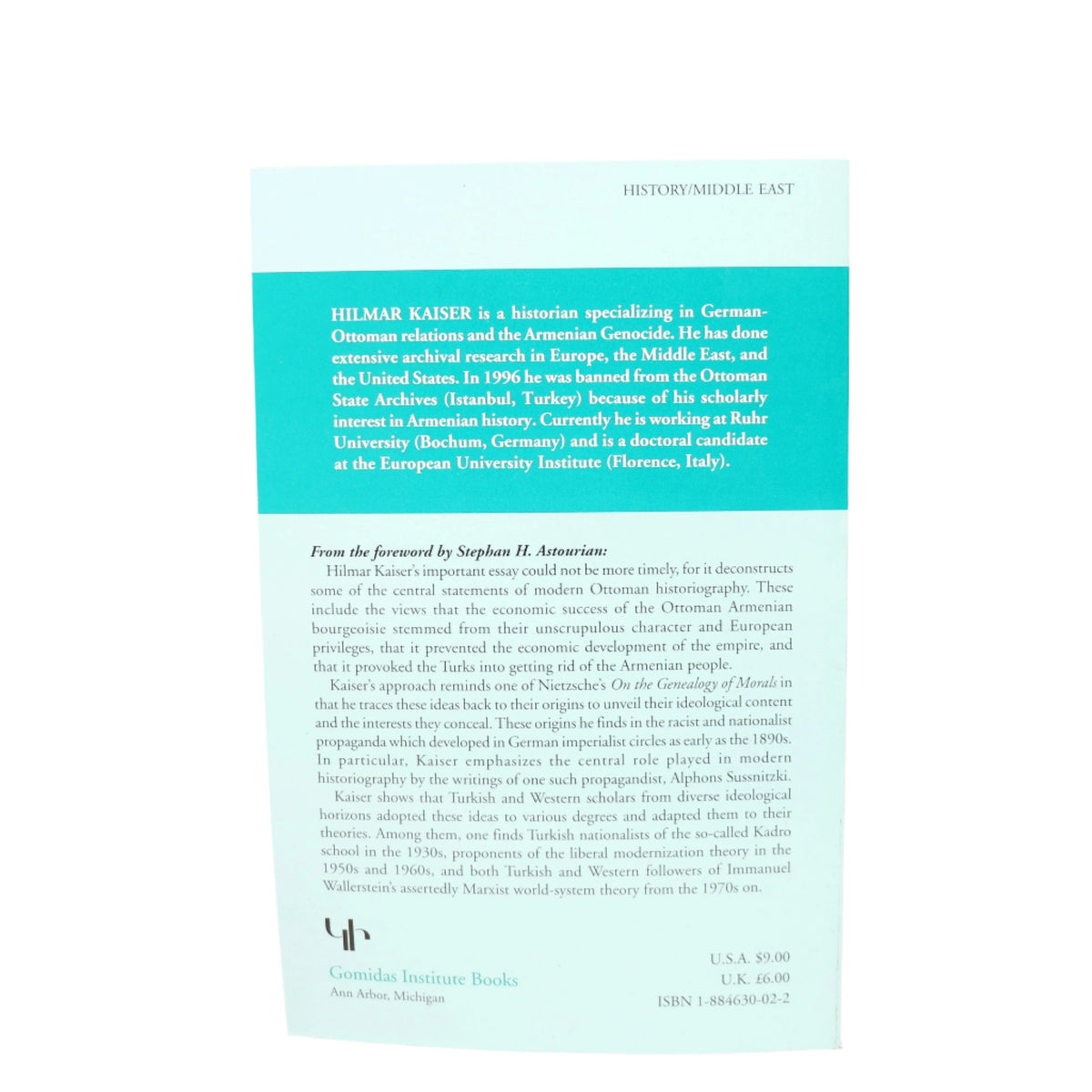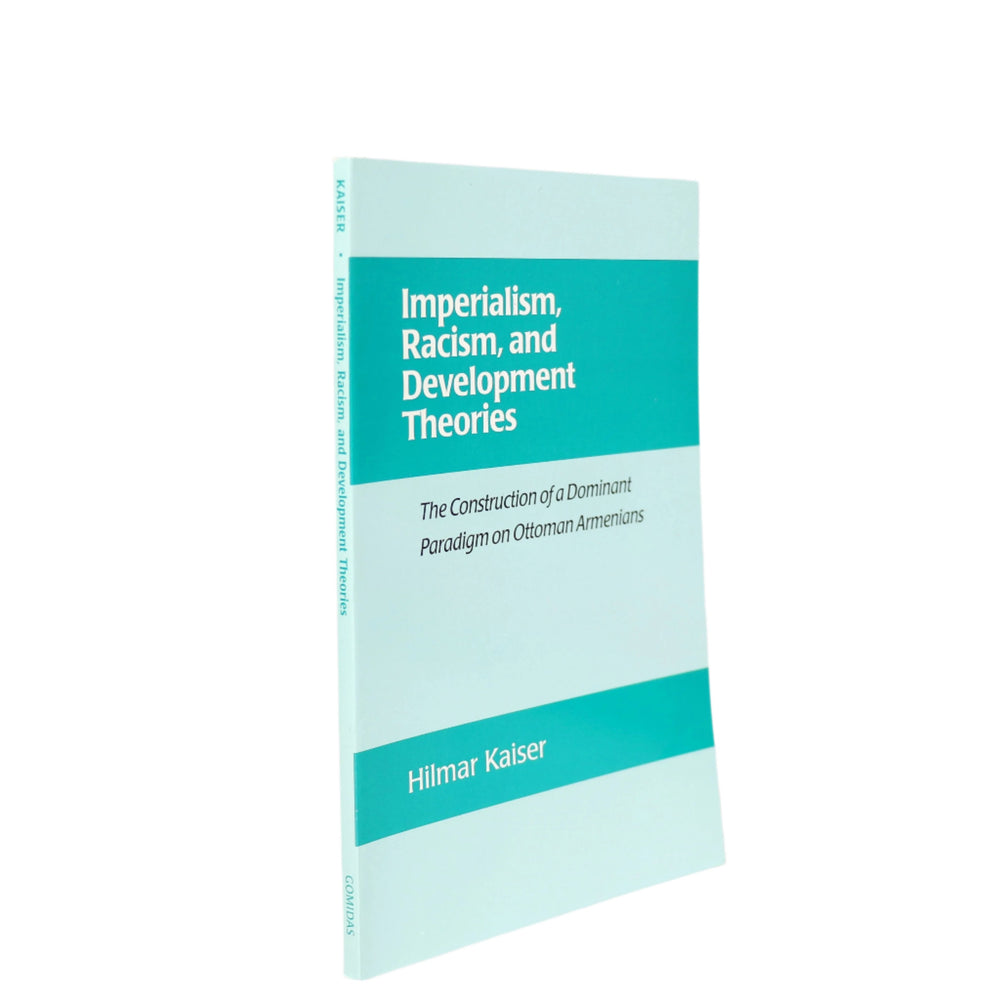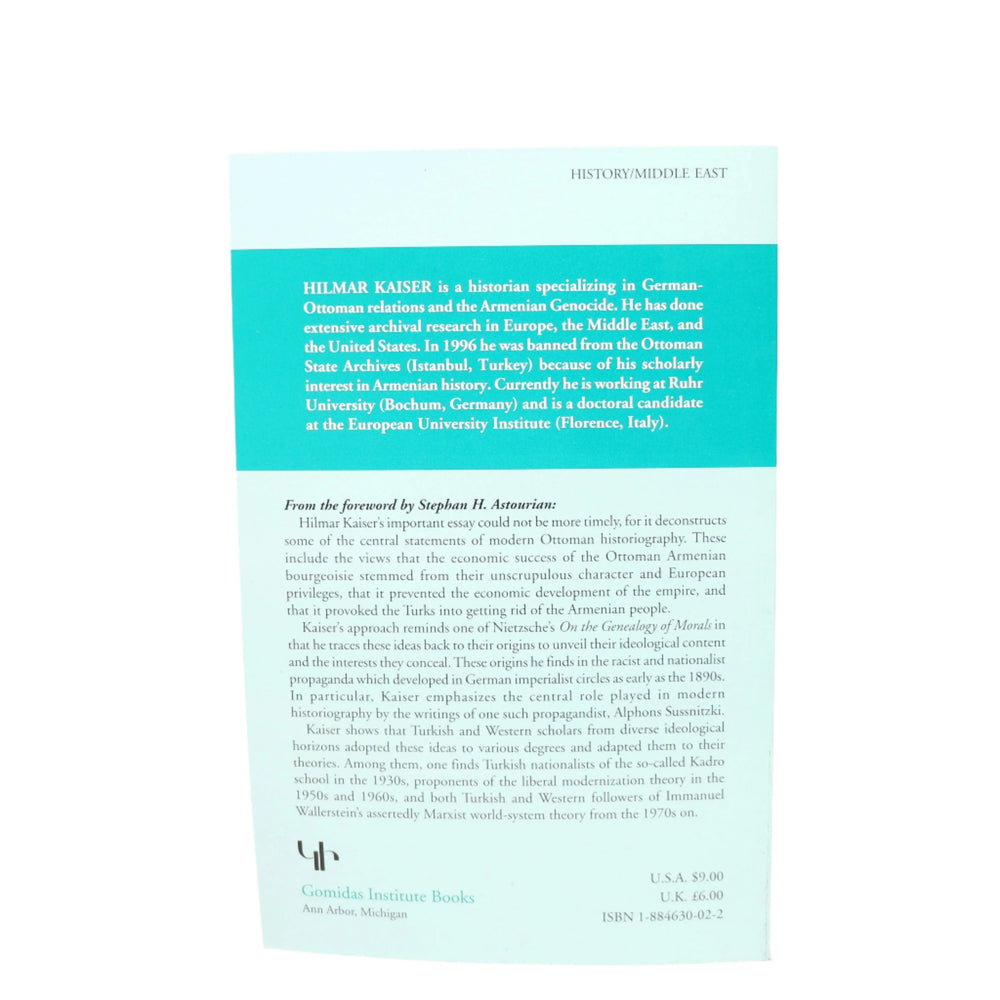By Hilmar Kaiser
In this slim volume, historian Hilmar Kaiser traces the sources of stereotypical portrayals of Armenians in various schools of Ottoman history writing. He finds that assertedly progressive scholars, in their treatment of Armenians in the late Ottoman Empire, pander to the interests of the Turkish state.
Kaiser examines the work of Charles Issawi, a prominent representative of modernization theory; Dogu Ergil, Stephen Ted Rosenthal, and Feroz Ahmad, who represent dependency theory; and Resat Kasaba and Aglar Keyder, followers of Immanuel Wallerstein's world-system theory.
Kaiser shows that for their portrayal of the role of Armenians in Ottoman trade, these authors have uncritically accepted and relied on early-twentieth-century material produced by the propaganda machine set up by the German Foreign Office.
Giving his readers an overview of the German "Orient" propaganda establishment, Kaiser discusses the works of German anti-Armenian propagandists such as Alfred Krte, Friedrich Naumann, Hugo Grothe, Paul Geister, Albrecht Wirth, Ewald Banse, Ernst Jckh, Ernst Marr, Eugen Mittwoch, and Alphons Sussnitzki.
About the Author:
Hilmar Kaiser is a historian specializing in German-Ottoman relations and the Armenian Genocide. He has done extensive archival research in Europe, the Middle East, and the United States. In 1996 he was banned from the Ottoman State Archives (Istanbul, Turkey) because of his scholarly interest in Armenian history. Currently he is working at Ruhr University (Bochum, Germany) and is a doctoral candidate at the European University Institute (Florence, Italy).
- Gallery
- Description


By Hilmar Kaiser
In this slim volume, historian Hilmar Kaiser traces the sources of stereotypical portrayals of Armenians in various schools of Ottoman history writing. He finds that assertedly progressive scholars, in their treatment of Armenians in the late Ottoman Empire, pander to the interests of the Turkish state.
Kaiser examines the work of Charles Issawi, a prominent representative of modernization theory; Dogu Ergil, Stephen Ted Rosenthal, and Feroz Ahmad, who represent dependency theory; and Resat Kasaba and Aglar Keyder, followers of Immanuel Wallerstein's world-system theory.
Kaiser shows that for their portrayal of the role of Armenians in Ottoman trade, these authors have uncritically accepted and relied on early-twentieth-century material produced by the propaganda machine set up by the German Foreign Office.
Giving his readers an overview of the German "Orient" propaganda establishment, Kaiser discusses the works of German anti-Armenian propagandists such as Alfred Krte, Friedrich Naumann, Hugo Grothe, Paul Geister, Albrecht Wirth, Ewald Banse, Ernst Jckh, Ernst Marr, Eugen Mittwoch, and Alphons Sussnitzki.
About the Author:
Hilmar Kaiser is a historian specializing in German-Ottoman relations and the Armenian Genocide. He has done extensive archival research in Europe, the Middle East, and the United States. In 1996 he was banned from the Ottoman State Archives (Istanbul, Turkey) because of his scholarly interest in Armenian history. Currently he is working at Ruhr University (Bochum, Germany) and is a doctoral candidate at the European University Institute (Florence, Italy).

